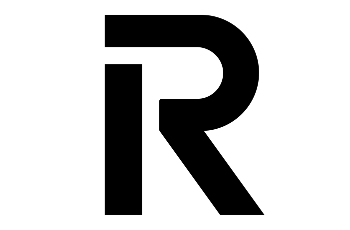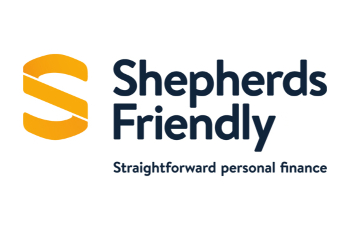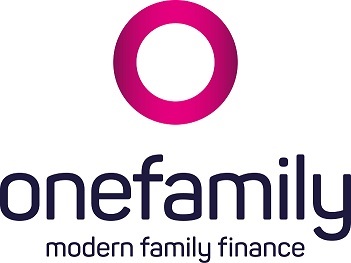This comparison simply includes all savings accounts.
Savings Accounts for Grandchildren
Disclaimer: Stocks and Shares Junior ISAs offer the potential for higher returns than Cash Junior ISAs, particularly if you choose to invest for the long-term. However, you do need to know that, as the underlying value of your child’s investment is linked to the fluctuations of the stock market; although the value cannot fall there is no guarantee that bonuses will be added each year.
Includes a Unitised With-Profits fund that comes with a guaranteed minimum payout when the child turns 18, provided no switches or withdrawals are made. Welcome Gift: After you start investing Scottish Friendly will pay £50 into the Junior ISA for your child
Disclaimer: The value of your investments can fall as well as rise, so your child could get back less than you paid in.
Disclaimer: Stocks and Shares Junior ISAs offer the potential for higher returns than Cash Junior ISAs, particularly if you choose to invest for the long-term. However, you do need to know that, as the underlying value of your child’s investment is linked to the fluctuations of the stock market; although the value cannot fall there is no guarantee that bonuses will be added each year.
Guide to the Best Savings Accounts for Grandchildren
Understanding the Importance of Saving for Your Grandchild's Future
The Benefits of Early Savings for Grandchildren
- Compound Interest Amplifies Growth: Saving early allows you to take advantage of compounding interest. Over time, the interest generated on the initial savings will also earn interest, leading to exponential growth. Starting early means more time for the savings to compound, resulting in a more substantial financial cushion.
- Financial Security and Flexibility: By setting up a savings account for your grandchild, you provide them with a financial safety net that they can rely on in the future. These savings can be utilised for various purposes, such as education, homeownership, or pursuing their passions.
- Inculcating Financial Discipline: Introducing the concept of saving from an early age helps teach your grandchild essential financial skills and responsibility. Understanding the value of money and how to manage it wisely can set them up for a financially prudent adulthood.
The Role of Grandparents in Securing Financial Stability
Here's how your involvement can positively impact their financial stability:
- Gifting Financial Contributions: Contributing to your grandchild's savings account on special occasions, such as birthdays or holidays, can significantly boost their savings and demonstrate your love and care for their future.
- Educating on Money Matters: Share your financial knowledge and experiences with your grandchild. Teaching them about budgeting, investing, and the importance of saving will empower them to make sound financial decisions later in life.
- Setting Future Goals Together: Encourage your grandchild to set savings goals. Whether it's saving for a college education, a dream trip, or a big-ticket item, having a clear objective fosters a sense of
Factors to Consider When Choosing a Savings Account for Your Grandchild
When selecting the best savings account for your grandchild, several crucial factors come into play. Each factor contributes to the overall growth and accessibility of the savings, ensuring that your grandchild's financial future is well-protected.
Interest Rates and Compounding
One of the most critical aspects of any savings account is the interest rate it offers. Higher interest rates enable faster growth of the savings over time. When comparing different savings accounts, pay attention to the following:
- Annual Percentage Yield (APY): This represents the effective interest rate that takes compounding into account. The higher the APY, the more your grandchild's savings will grow over time.
- Fixed vs. Variable Interest Rates: Some savings accounts offer fixed interest rates, which remain constant throughout the account's term. Others provide variable interest rates that may change based on market conditions. Consider the pros and cons of each to determine the best fit for your grandchild's needs.
- Introductory vs. Standard Rates: Some accounts may offer higher introductory rates for a limited time. Ensure you understand the duration of the introductory period and the interest rate that applies thereafter.
Account Accessibility and Withdrawal Options
While saving for your grandchild's future is a long-term commitment, it's essential to consider the account's accessibility and withdrawal options:
- Accessibility: Opt for a savings account that allows easy access to account information through online banking or mobile apps. This convenience makes it simpler for both you and your grandchild's parents to monitor and manage the account.
- Withdrawal Restrictions: Some savings accounts may come with withdrawal restrictions or penalties. Be aware of these limitations to avoid any unexpected fees or limitations on accessing the savings when needed.
- Parental Control: If your grandchild's parents will be involved in managing the account, ensure that the chosen savings account allows for parental control or joint ownership.
Tax Efficiency and Child Trust Funds
Tax efficiency is a crucial consideration when choosing a savings account for your grandchild:
- Junior ISAs: Junior Individual Savings Accounts (ISAs) are a tax-efficient option for your grandchild's savings. Any interest earned within a Junior ISA is tax-free, maximising the growth potential of the savings.
- Child Trust Funds (CTFs): If your grandchild was born between September 1, 2002, and January 2, 2011, they might have a Child Trust Fund account. CTFs were replaced by Junior ISAs, but existing CTFs can still be managed or transferred to a Junior ISA for potentially better returns.
Savings Account Options: Junior ISAs vs. Children's Savings Accounts
- Junior ISAs: These tax-free savings accounts are available in two types: Junior Cash ISAs and Junior Stocks and Shares ISAs. Junior Cash ISAs work like regular savings accounts with tax-free interest, while Junior Stocks and Shares ISAs allow investments in stocks and funds, potentially offering higher returns.
- Children's Savings Accounts: These accounts are offered by various banks and financial institutions and are not tax-free. However, they might offer competitive interest rates and additional perks. Children's Savings Accounts are often more flexible in terms of accessibility and withdrawal options.
Consider your grandchild's financial goals, your risk tolerance, and their parents' preferences when deciding between a Junior ISA and a Children's Savings Account.
Tips for Maximising Savings for Your Grandchild
As a devoted grandparent, you have a vested interest in ensuring your grandchild's financial future is secure and prosperous. Maximising their savings requires thoughtful planning and consistent efforts. Here are some essential tips to help you achieve that goal:
- Set Realistic Saving Goals: Determine the financial milestones you want to achieve for your grandchild. Whether it's saving for their education, a down payment on a home, or other significant life events, setting clear goals provides a roadmap for your savings strategy.
- Automate Contributions for Consistency: Consider setting up automatic transfers to your grandchild's savings account. Automating contributions ensures that you consistently build their savings without the risk of forgetting or missing a deposit.
- Leverage Financial Gifts Strategically: On special occasions, such as birthdays or holidays, consider gifting financial contributions instead of material gifts. These financial gifts can make a significant impact on your grandchild's savings and future.
- Encourage Family Involvement: Share your savings strategy with other family members, encouraging them to contribute to your grandchild's savings as well. This collaborative effort can create a powerful and collective financial gift for their future.
- Teach Financial Literacy: Educate your grandchild about the importance of saving, budgeting, and making wise financial decisions. Teaching them early about financial responsibility empowers them to become financially savvy adults.
- Take Advantage of Government Schemes: If your grandchild is eligible for a Junior ISA or Child Trust Fund, take advantage of these tax-efficient government schemes to maximise their savings' growth potential.
- Explore Investment Options: Depending on your risk tolerance and time horizon, consider exploring investment opportunities for your grandchild's savings. Stocks and shares can potentially offer higher returns in the long run.
- Monitor and Adjust: Regularly review the performance of your chosen savings account or investment. If needed, be prepared to adjust your strategy to align with changing financial goals or market conditions.
- Make It a Learning Experience: Involve your grandchild in their savings journey. Explain to them how their money is growing and involve them in setting and tracking their savings goals. This interactive approach fosters a sense of ownership and financial awareness.
- Lead by Example: Demonstrate responsible financial practices in your own life. Your positive financial habits will serve as a valuable model for your grandchild to follow.
Frequently Asked Questions (FAQs)
1. What is the difference between a Junior ISA and a Children's Savings Account?
Junior ISA: A Junior Individual Savings Account (ISA) is a tax-efficient savings option exclusively designed for children. It comes in two types: Junior Cash ISAs and Junior Stocks and Shares ISAs. The Junior Cash ISA offers tax-free interest on savings, while the Junior Stocks and Shares ISA allows investments in stocks and funds for potential higher returns.
Children's Savings Account: A Children's Savings Account is a standard savings account offered by various banks and financial institutions. While it does not provide tax benefits like a Junior ISA, it may offer competitive interest rates and more flexible withdrawal options.
2. Can parents access funds in a Junior ISA or Children's Savings Account?
Junior ISA: No, parents cannot access the funds within a Junior ISA. The money in the account is held in the child's name, and the funds are inaccessible until the child turns 18. At that point, the account automatically converts to an adult ISA, and the child gains full control over the savings.
Children's Savings Account: The accessibility of funds in a Children's Savings Account may vary depending on the account terms and conditions. Some accounts may allow parental control until the child reaches a certain age, while others may grant the child access at any time.
3. Are there any tax implications for the grandchild or grandparent?
Junior ISA: No, there are no tax implications for either the grandchild or grandparent within a Junior ISA. The interest earned within a Junior ISA is tax-free, making it a tax-efficient savings option.
Children's Savings Account: For a Children's Savings Account, the interest earned may be subject to tax, depending on the child's overall income and tax allowances. Grandparents should consider the tax implications when gifting funds to a Children's Savings Account.
4. What happens to the savings account when the child turns 18?
Junior ISA: When the child turns 18, the Junior ISA automatically converts into an adult ISA. At this point, the account holder gains full control over the savings and can choose to continue saving or utilise the funds for various purposes.
Children's Savings Account: The account's terms and conditions will determine what happens when the child reaches the age of majority. Some accounts may convert to an adult savings account, while others may require the child to open a new account in their name.
5. What are the eligibility criteria for Junior ISAs?
Answer: To open a Junior ISA, your grandchild must be under 18 years old and a UK resident. Additionally, they must not already have a Child Trust Fund account, as individuals can only have one of these tax-efficient accounts.
6. Can I contribute to my grandchild's Junior ISA or Children's Savings Account?
Answer: Yes, you can contribute to your grandchild's Junior ISA or Children's Savings Account. Gifting financial contributions on special occasions can significantly boost their savings and demonstrate your love and support for their future.







